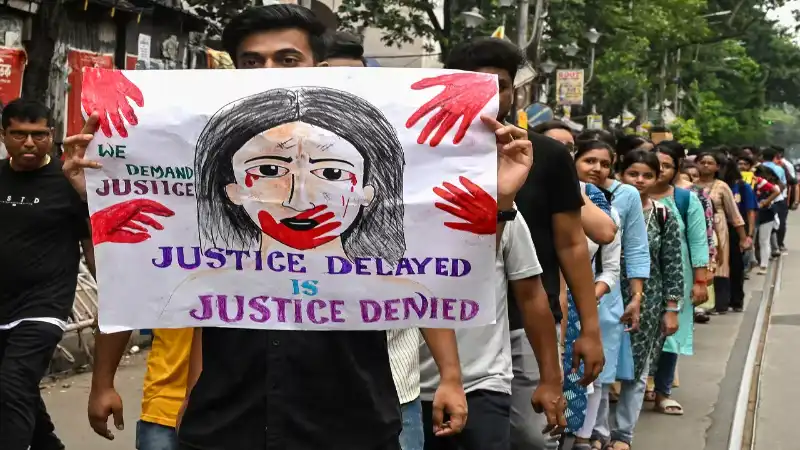In the complex political landscape of India, the opposition parties, particularly those united under the I.N.D.I. Alliance, have come under scrutiny for what many perceive as a double standard in their response to heinous crimes reported across the country. When such incidents occur in BJP-led states, where the party is in power at the center, the opposition is quick to rally, often taking to the streets in protest. However, when similar or even more severe crimes occur in states governed by the opposition or in regions where members of the I.N.D.I. Alliance hold power, the same fervour is notably absent.
The Hathras Incident and Opposition’s Swift Response
A prime example of this discrepancy can be observed in the aftermath of the Hathras case, where a young Dalit woman was brutally assaulted and later succumbed to her injuries. The incident, which took place in Uttar Pradesh, a BJP-ruled state, saw an outpouring of condemnation from opposition leaders. Rahul Gandhi, a prominent figure in the Congress party, which is a key member of the I.N.D.I. Alliance, rushed to Hathras to meet with the victim’s family, bringing national and international attention to the case. Protests erupted across the country, with opposition leaders demanding accountability and justice.
Silence in Bengal and Karnataka
Contrast this with the response to crimes in states governed by the opposition. In West Bengal, for instance, where the Trinamool Congress (TMC) is in power, there have been several instances of violence and lawlessness. Yet, the TMC’s leadership, including Abhishek Banerjee, has often remained silent, even when senior leaders within the party have questioned the administration’s handling of such incidents. This silence has led to criticism from various quarters, accusing the party of ignoring crimes when they occur under its own watch.
Similarly, in Karnataka, where the Congress party is in power, the opposition has accused the state government of failing to take appropriate action in response to violent incidents. Despite this, leaders like Rahul Gandhi have been conspicuously silent, raising questions about the consistency of their stance on law and order across different states.
Allegations Against I.N.D.I. Alliance Members
Another recent incident further highlights this double standard. In Ayodhya, a shocking rape case has become known, with allegations against a Samajwadi Party leader, a key ally of the I.N.D.I. Alliance. Despite the gravity of the accusations, there has been little to no response from the alliance’s leadership, which contrasts sharply with their vocal stance in BJP-ruled states.
The Need for Consistency in Condemnation
The selective outrage of the opposition has sparked debate on the need for a more consistent and non-partisan approach to addressing crimes, regardless of where they occur or who is in power. Critics argue that the opposition’s approach undermines its credibility and raises questions about its commitment to justice and the rule of law.
In a democratic setup, it is crucial that all political players, whether in power or in opposition, maintain a uniform standard when responding to crimes, especially those of a heinous nature. The public’s perception of justice should not be swayed by political affiliations, and all victims, regardless of where they are or who governs them, deserve the same level of attention and action.
Remark
As India heads into another election season, the opposition’s approach to such incidents will be a significant point of contention. The I.N.D.I. Alliance must address these allegations of double standards if it hopes to maintain its moral high ground and effectively challenge the ruling party. The country, and its people, deserve nothing less than a consistent and unwavering commitment to justice from all political parties, irrespective of their position in power.


